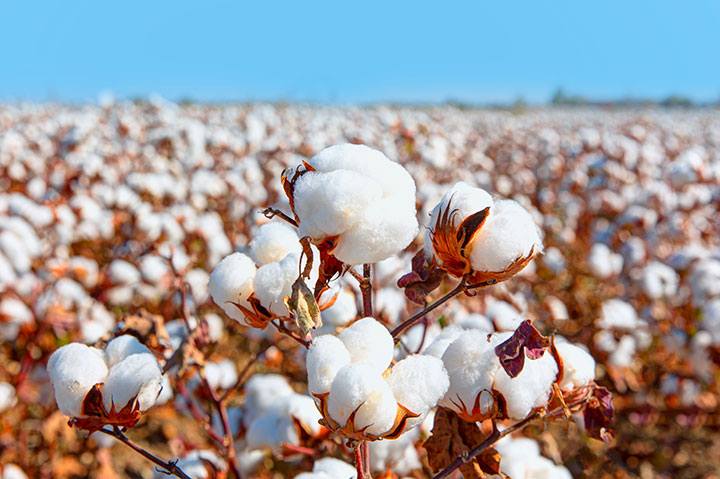Sustainability April 11, 2024
Report: Better Cotton Linked to Deforestation, Human Rights Violations in Brazil
Earthsight, an investigative nonprofit, released a report linking fast-fashion brands H&M and Zara to “dirty Brazilian cotton” – noting that the cotton in question had been certified as ethical by sustainability initiative Better Cotton.
A new report from a U.K.-based nongovernmental organization is raising alarm bells about the Better Cotton certification system – linking major fashion brands to “illegal deforestation, violence, human rights violations and corruption in Brazil.”

Earthsight, a nonprofit devoted to exposing environmental and social injustice, released a “Fashion Crimes” report on Thursday, April 11, that calls out fast-fashion brands H&M and Zara for using “dirty Brazilian cotton.”
The cotton in question is grown by two of Brazil’s largest agribusinesses – SLC Agrícola and the Horita Group – in the Bahia state, which is part of the Cerrado biome, a region that has been heavily deforested in recent decades, according to the report. Deforestation there has had a major negative impact on biodiversity, with a number of species threatened with extinction due to habitat loss. Earthsight also points to the human impact, noting that traditional communities in Bahia had their land stolen from them by agribusinesses. The cotton, however, had been certified as ethical by Better Cotton, an organization that says it promotes better standards in cotton farming and practices across 22 countries.
Many of the exports from the Brazilian companies went to China, Vietnam, Indonesia, Turkey, Bangladesh and Pakistan, according to the report. Where Earthsight was able to trace the tainted cotton to clothing manufacturers and end-markets, “again and again we found that those Asian firms were supplying finished cotton goods to numerous well known Western retailers – including millions of items to Zara and H&M.”
H&M called the findings “highly concerning” and said it had asked Better Cotton to conduct a third-party investigation, and a spokesperson for Inditex, which owns Zara, said Better Cotton “strictly prohibits” deforestation and land-grabbing, noting that it’s taking the allegations extremely seriously, according to Context.
In a statement, Better Cotton, which described itself as “the world’s largest sustainability initiative for cotton,” said it works with partners worldwide to help farmers produce cotton in a more sustainable way. “Our standards are regularly reviewed and improved, and we work with third-party auditors to check they are followed,” the organization said.
“We have conducted an independent audit of the highly concerning issues raised which relate to three Better Cotton-licensed farms in the state of Bahia in Brazil,” the statement continued. “We are committed to making a summary of the findings of the audit available to Earthsight and all our members.”
Better Cotton noted that if it finds evidence that the farms don’t comply with its standards, their licenses will be suspended or revoked.
Better Cotton represents more than one-fifth of global cotton production, and has more than 2,500 members. Among them are promotional products suppliers Threadfast Apparel (asi/91163), Fruit of the Loom (asi/84257) and Top 40 supplier Gildan (asi/56842). Last year, J. America (asi/62977) announced that it would be using Better Cotton in some of its apparel styles.
Shahi, a factory in India that Top 40 supplier SanMar (asi/84863) partners with, is also a Better Cotton member, though SanMar told ASI Media in a statement that it doesn’t source Better Cotton from Shahi and “is unable to comment on their sourcing practices for other customers.”
“We recognize the importance of organizations that work to hold industries accountable in their supply chains and bring to light issues that require further investigation and remediation,” the Issaquah, WA-based supplier noted. “Equally, organizations like Better Cotton or other sustainability certifications are important tools for industries to have in their toolbox.”
SanMar continued: “While no solution is perfect, organizations with a global sourcing reach must utilize a range of practices – from third-party certification to internal oversight – to ensure people and planet are protected in our supply chains.”

Promo for the Planet is your destination for the latest news, biggest trends and best ideas to help build a more sustainable and socially-responsible industry.
